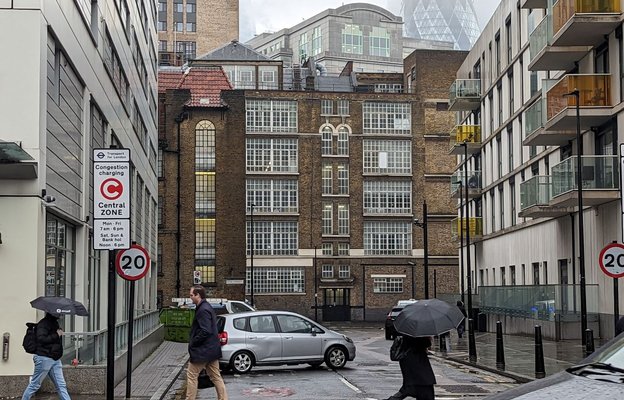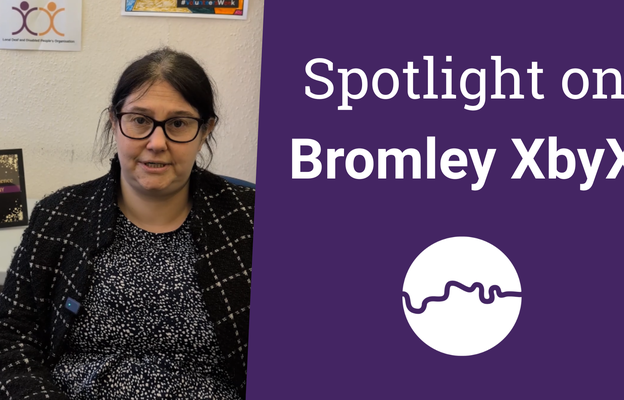
After more than two decades of work campaigning on food poverty in the UK, Sustain: the alliance for better food and farming takes a step back to reflect on where we are, what we have learned, and what next.
As the January frosty nights draw in and snow is falling across the UK, the bleak headline of the Social Metrics Commission’s recent report that ‘the rate of poverty in the UK is now higher than at any point in the 21st Century’ evokes chilly images of a Dickensian England rather than the modern day. Almost a quarter of Brits are now judged to be living in poverty, and millions are facing food insecurity, with children and disabled people the hardest hit.
The Sustain alliance first came together 25 years ago to champion food system change. Its founding purposes were to champion the policies and practices that would enable a healthy, accessible and sustainable food supply. Yet throughout, food poverty has remained persistent and intractable, as has the continued shocking rise in need for emergency food banks.
Why does food insecurity continue to stubbornly rise?
Increasingly our alliance has recognised that chronic household food insecurity is a product of low incomes, expensive housing and utilities, debt and struggling local economies with a lack of holistic community support services.
This only worsened in the wake of the pandemic and subsequent cost-of-living crisis when, after years of austerity measures, the country was ill-equipped to cope. Incomes have not risen to meet the Real Living Wage, and we have seen a lack of poverty reduction strategies, leaving so many families struggling to make ends meet. When it comes to their grocery budgets they are left scraping the bottom of a pretty empty barrel, with the poorest fifth of families having to spend an unrealistic 47% of their disposable income to purchase a healthy diet.
Food poverty has remained persistent and intractable, as has the continued shocking rise in need for emergency food banks.
As an alliance of food and farming charities, we don’t work directly on housing, utilities or debt. However, we see that efforts to improve household food security are working uphill in a policy environment that entrenches inequality and makes equitable food initiatives harder rather than easier. More money needs to flow into the right places, and better policies need to create the enabling framework for change.
What can we do? The importance of local action
While national progress on food insecurity has been lacking, we have seen inspiring and meaningful impact at the local level.
Thirteen years ago, we literally sketched out a map of London on the back of an A4 envelope. Borough by borough, we listed what actions were and were not being taken to tackle food insecurity. We found pockets of good work, happening in isolation and without city-wide support or recognition.
Surely, we thought, we could find a way to drive up participation and help local authorities understand their role in making change happen, locally and city-wide. We published that first map, making those pockets of tangible actions visible to policy-makers, civil society and communities. We celebrated pioneering action, and where no action was being taken, we coloured that borough grey. At the launch event, one local authority officer memorably said, “Nobody wants to be the grey borough,” and we knew we were onto something.
Since then, our alliance has shifted our approach to champion the importance of local action.
We now work with over 100 food partnerships across the country as part of the Sustainable Food Places network, cultivating the infrastructure for healthy, sustainable and affordable food supply and for household food security, 16 of these partnerships are in London with several more in development. Our Food Power network supported food poverty alliances to set up across the country, and to develop action plans to strategically address food insecurity.
And we still publish that map, now with much more sophisticated measures co-developed with local authorities and experts. Working with the Greater London Authority and funded since 2013 by Trust for London, we now have 31 of the 33 London boroughs voluntarily engaging with our Good Food Local: London report, as well as our events, workshops, policy briefings and recommendations. Local authorities have told us they use this annual report as a tool the raise the food agenda in the borough, lobby for more resources to fill in the gaps, and platform and celebrate the good work they do.
Over the years, councils have progressed in their work and increased their scores across food issues, including on measures to address food insecurity, and every year we review the measures and move the goalpost where appropriate to push for more progress. Following the success of this approach in London, we are now replicating this regional work in the North East of England and will continue to expand this approach across the UK.
The changes needed at a national level
Local action has a real impact of people’s lives. But to truly tackle food insecurity, we need bold, ambitious and economically astute initiatives across all of the factors that serve to entrench poverty and household food insecurity, from housing to utilities, and from living wages to affordable fresh food. Our alliance has evolved our collective policy and campaign efforts towards two main approaches.
The first is ‘cash first’. This means supporting work to maximise incomes through national and local policy.Put simply: everyone needs the money to be able to afford what they need – including adequate food – in a secure, independent and dignified way. We add our compelling household food security voice to vital initiatives such as the Living Wage movement, local authority Household Support Fund, and the Guarantee Our Essentials initiative for an adequate social security safety net.
Local action has a real impact of people’s lives. But to truly tackle food insecurity, we need bold, ambitious and economically astute initiatives across all of the factors that serve to entrench poverty and household food insecurity.
The second is the ‘nutritional safety net’. Over recent decades, the nation’s food supply has shifted towards ultra-processed and convenience foods, alongside a national decline in fruit and vegetable production, a poor deal for farmers and overreliance on imports from climate vulnerable countries. This broken food system has a gigantic impact on health, inequalities and life chances experienced most damagingly by people living in poverty and marginalised groups. People don’t choose to develop diet related ill-health, it is fuelled by the food environment in which they live and the food options they grow up with, can access and afford.
How we campaign to fix the food system
At Sustain we advocate for policies that improve access to fresh, nutritious, and culturally attractive food. For example:
- Healthy Start payments that make healthy food affordable for new families
- School meals and breakfast clubs prepared to high nutritional standards and provided free of charge as a right, just like the teaching. We are thrilled that the Mayor of London now funds free school meals in primary schools but want to see this extended to all schools.
- The No Child in a Home Without a Kitchen campaign, for families in temporary accommodation.
- Access to kitchens and appropriate, nutritious food to be provided to people seeking asylum, which is a far cry from the current woeful situation in London.
To foster a better food system, we also need to combat the dominance of unhealthy food. We do this both by working with Transport for London and local councils to help them remove junk food adverts and limit hot food takeaways near schools, but also by supporting good practice. For example by promoting community food enterprises and piloting projects to subsidise social food enterprises that prioritise the flow of paid jobs and affordable fresh, healthy, agroecological food into communities deprived of both. Importantly, our alliance also campaigns upstream for the financial and policy changes to improve the nutritional quality of the food supply and make money flow into the right places. Our movement’s concerted campaign efforts won the Soft Drinks Industry Levy (sugary drinks tax) that removes millions of tonnes of sugar from our diets, while investing millions of pounds for children’s health programmes.
To foster a better food system, we also need to combat the dominance of unhealthy food.
Overall, we need to improve the money flows, rather than the hand-to-mouth pattern of charitable funds and the drip-feed from the national purse. We also need legislation that makes this work an obligation rather than relying on voluntary action, inspired by the Good Food Nation Act in Scotland that requires local authorities to devise and implement food action plans.
What’s next?
We are ramping up the work supported by Trust for London on the framework and benchmarking of local authority actions that embed ‘cash first’ and ‘nutritional security’ approaches. Now well-established in London, we hope that rolling out this work with public health teams across the North East of England will lead to expanding this work nationally. In the first year of work, we have seen brilliant collaboration across the region, taking a strategic, joined-up approach to implementing policies and practice which tackle the root causes of food insecurity.
We’ll also keep pushing for bold policies needed to reduce poverty and insecurity, such as by consulting on the upcoming National Food Strategy and Child Poverty Strategy.
Please do get in touch if you’d like to be involved.


